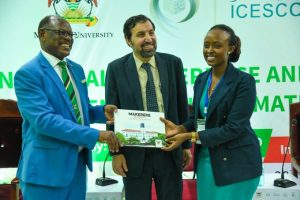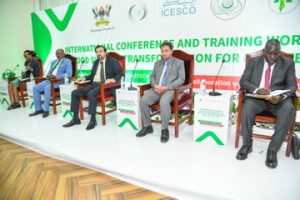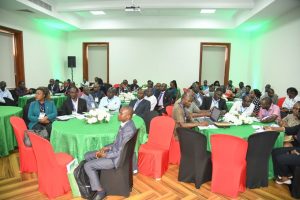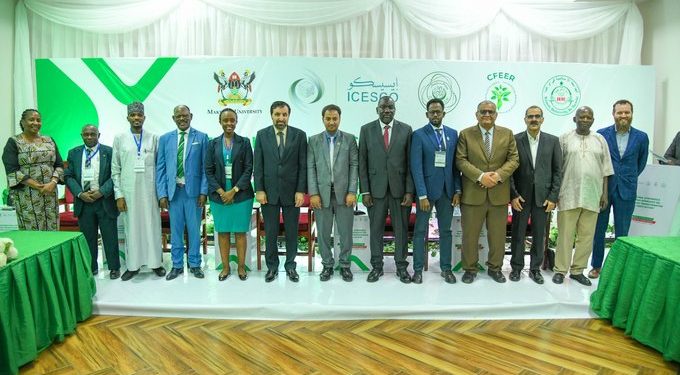Makerere University today convened the International Conference and Workshop on Food Systems Transformation and Action, bringing together policymakers, researchers, and international partners to address the pressing challenge of food security in Africa.
The conference, hosted at Makerere University’s College of Agricultural and Environmental Sciences (MakCAES), was opened by the High Commissioner of Pakistan to Uganda, H.E. Muhammad Hassan Wazir.
In his opening remarks, Vice Chancellor Prof. Barnabas Nawangwe emphasised the urgency of tackling climate change and population growth to ensure sustainable food systems. “The first question that we must ask ourselves is: How will we feed all these people? We continue to hear proclamations about Africa having the capacity to feed the whole world, yet at the same time, most of our countries are net importers of food,” Prof. Nawangwe said.
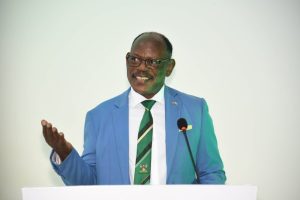
“At Makerere University, we are aware of this challenge and believe we have the capacity to contribute to the food security of our continent and indeed the entire world. The only solution to these challenges is innovation, business incubation, and wealth creation.”
The conference, organised in partnership with ICESCO, COMSTECH, and the National Commission for UNESCO, provided a platform to explore science- and technology-driven solutions to improve food production, reduce waste, and build resilient food systems.
Prof. Nawangwe also highlighted the importance of research-led and research-intensive approaches to addressing Africa’s food security challenges.
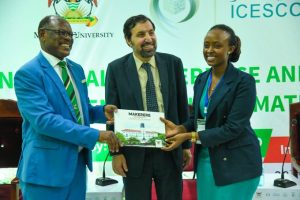
Keynote speaker Dr Logan Cochrane of Policy College at HBKU underscored the global dimension of food insecurity. “In 2025, there are an equal number of children who are underweight as there are overweight—approximately 10% of the global population of children are underweight and approximately 10% are overweight. This means our food systems are not only insufficient, but they are also unhealthy. We need to focus not only on access to food, but also the healthiness of our food systems,” Dr Cochrane said.
Dr Cochrane outlined five opportunities to address the challenges: sustainable production with locally relevant research and development, expanding intra-African trade, good governance and policy-making that enables private sector and smallholder participation, efficiency through reducing food loss and waste, and social protection for vulnerable populations, including those displaced by conflict.
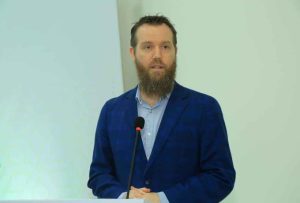
“In many countries, up to 50% of our food is either lost or wasted,” he warned.
The High Commissioner of Pakistan, H.E. Muhammad Hassan Wazir, reflected on the global nature of food security challenges, citing Pakistan’s recent experience with climate-related disasters.
“Climate change is real. While the whole world has been feeling its impact for several years, we in Pakistan have witnessed devastation. We recently experienced a large-scale cloudburst, severe floods, flash flooding, and melting of glaciers in the Himalayas. This led to the destruction of crops and the displacement of millions of people. The fabrics of societies and nations are shaken. While this is a global issue, the solutions are often found in strong bilateral and multi-partnerships,” he said.
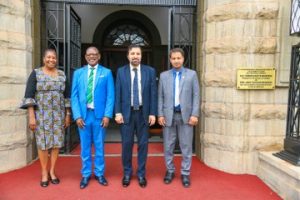
Uganda’s own policymakers also stressed the country’s potential to become a regional hub for resilient and sustainable food production.
Alex Bambona of the Ministry of Agriculture, Animal Industry, and Fisheries highlighted that “Uganda is naturally endowed with good soils and favourable weather, but we have gaps in embracing this endowment to our benefit, such as inadequate capacity to harness science and technology. Platforms such as this conference can provide vital answers to help address these and other related gaps.”
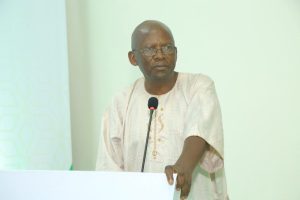
The International Conference on Food Systems Transformation and Action signals Makerere University’s commitment to fostering solutions that are both locally grounded and globally relevant. By leveraging research, innovation, and collaboration, the university aims to contribute to sustainable food systems that can meet the needs of Africa’s rapidly growing population.
